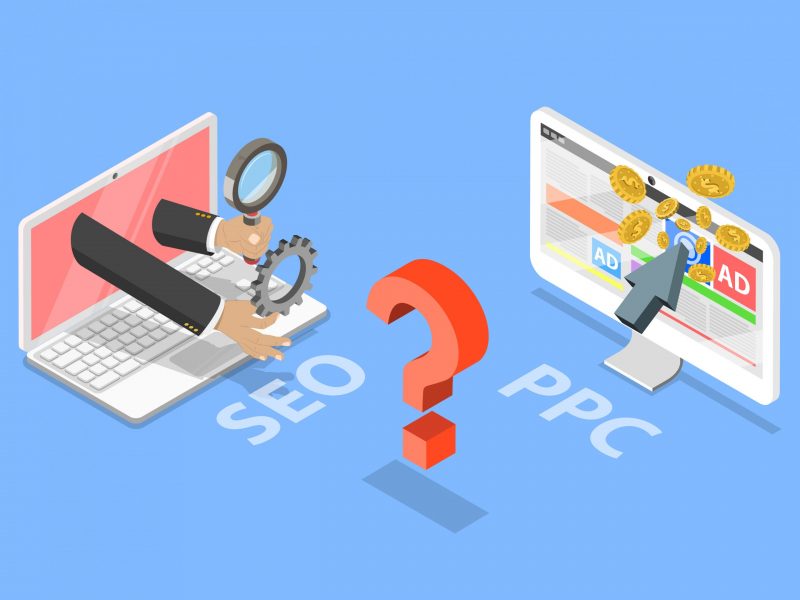Launching a pay-per-click (PPC) campaign can be an effective way to drive targeted traffic to your website and boost your business’s visibility online. However, navigating the intricacies of PPC advertising requires strategic planning and execution to maximise your return on investment (ROI). This article unveils 10 indispensable PPC tips for a successful campaign, ensuring you harness the full potential of your ads.
Understanding PPC Campaigns
PPC advertising is a model where advertisers pay a fee each time their ad is clicked. It’s a method to buy visits to your site rather than attempting to earn those visits organically. The most popular form of PPC is search engine advertising, which allows advertisers to bid for ad placement in a search engine’s sponsored links when someone searches on a keyword related to their business offering.
Defining Clear Goals
Before diving into the specifics, establish clear objectives for your PPC campaign. Are you aiming to increase sales, generate leads, or boost brand awareness? Defining these goals will shape your strategy and help measure the success of your campaign.
Keyword Research
Keywords are the foundation of any successful PPC campaign. Conduct thorough keyword research to identify the terms and phrases your target audience uses. Tools like Google Keyword Planner and SEMrush can provide valuable insights. Focus on high-intent keywords that indicate a strong likelihood of conversion.
Crafting Compelling Ad Copy
Your ad copy needs to be compelling and relevant. It’s often the first interaction potential customers have with your brand. Highlight the unique selling points (USPs) of your product or service, use strong calls-to-action (CTAs), and ensure your ad copy aligns with the keywords you are targeting.
Landing Page Optimisation
A high-converting landing page is crucial for PPC success. Ensure your landing page is relevant to the ad, easy to navigate, and optimised for mobile users. The content should be clear, concise, and include compelling CTAs. The goal is to provide a seamless experience that drives users to take action.
Utilising Negative Keywords
Negative keywords prevent your ads from being shown to users who are unlikely to convert. This feature helps you filter out irrelevant traffic, ensuring your budget is spent on high-quality leads. Regularly update your negative keyword list based on the search terms report to optimise your campaign.
Bid Management
Effective bid management can make or break your PPC campaign. Determine how much you’re willing to spend per click and adjust your bids based on performance. Automated bidding strategies, such as Target CPA (Cost Per Acquisition) or Target ROAS (Return on Ad Spend), can help maximise your budget.
Ad Extensions
Ad extensions provide additional information and encourage users to take action. These can include site links, call buttons, location information, and more. Utilising ad extensions can increase your ad’s visibility and click-through rate (CTR), leading to better campaign performance.
Monitoring and Adjusting Campaigns
PPC is not a set-it-and-forget-it strategy. Regularly monitor your campaign performance and make necessary adjustments. Analyse metrics such as CTR, conversion rate, and ROI. Use this data to refine your keyword list, ad copy, and bidding strategy to continuously improve your results.
A/B Testing
A/B testing, or split testing, involves running two variations of an ad to see which performs better. Test different headlines, ad copy, CTAs, and landing pages. A/B testing helps identify the most effective elements of your campaign, allowing you to optimise for better performance.
Leveraging Remarketing
Remarketing targets users who have previously visited your site but didn’t convert. By showing them targeted ads as they browse other sites, you can re-engage these potential customers and encourage them to return. Remarketing is a powerful way to increase conversions and maximise the value of your PPC spend.
Conclusion
Implementing these 10 PPC tips for a successful campaign can significantly enhance your advertising efforts. From thorough keyword research and compelling ad copy to effective bid management and A/B testing, each element plays a crucial role in driving targeted traffic and achieving your business goals. Stay vigilant, keep optimising, and watch your PPC campaign thrive.
What is the primary goal of a PPC campaign?
How important is keyword research?
What are negative keywords?
Why should landing pages be optimised?
What is A/B testing?
How can remarketing improve PPC campaign performance?
Looking for a Norwich PPC Agency?
Visit our PPC service page for all the details!













